Jurgen (42)
By:
January 4, 2016
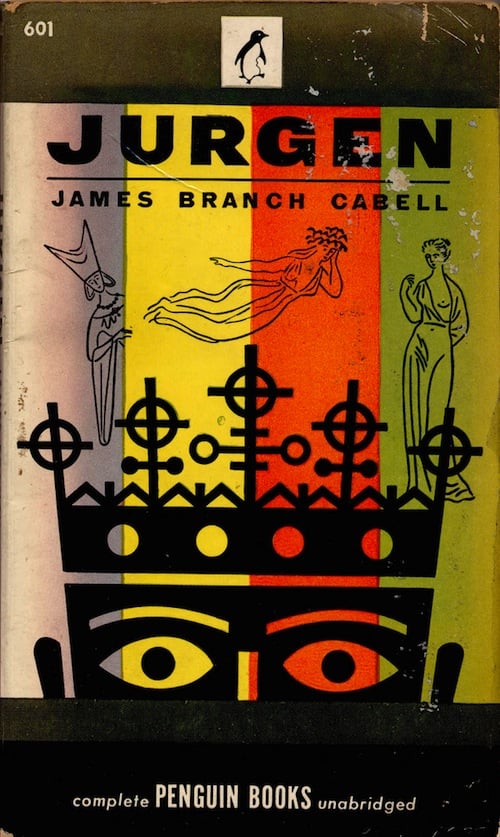
James Branch Cabell’s 1919 ironic fantasy novel Jurgen, A Comedy of Justice, the protagonist of which seduces women everywhere he travels — including into Arthurian legend and Hell itself — is (according to Aleister Crowley) one of the “epoch-making masterpieces of philosophy.” Cabell’s sardonic inversion of romantic fantasy was postmodernist avant la lettre. HiLoBooks is pleased to serialize Jurgen here at HILOBROW. Enjoy!
Jurgen then went unhindered to where the God of Jurgen’s grandmother sat upon a throne, beside a sea of crystal. A rainbow, made high and narrow like a window frame, so as to fit the throne, formed an arch-way in which He sat: at His feet burned seven lamps, and four remarkable winged creatures sat there chaunting softly, “Glory and honor and thanks to Him Who liveth forever!” In one hand of the God was a sceptre, and in the other a large book with seven red spots on it.
There were twelve smaller thrones, without rainbows, upon each side of the God of Jurgen’s grandmother, in two semi-circles: upon these inferior thrones sat benignant-looking elderly angels, with long white hair, all crowned, and clothed in white robes, and having a harp in one hand, and in the other a gold flask, about pint size. And everywhere fluttered and glittered the multicolored wings of seraphs and cherubs, like magnified paroquets, as they went softly and gaily about the golden haze that brooded over Heaven, to a continuous sound of hushed organ music and a remote and undistinguishable singing.
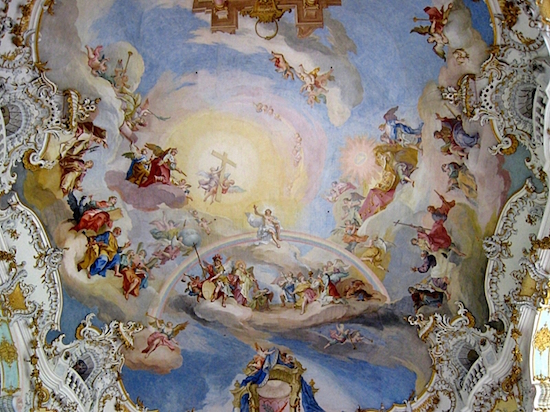
Now the eyes of this God met the eyes of Jurgen: and Jurgen waited thus for a long while, and far longer, indeed, than Jurgen suspected.
“I fear You,” Jurgen said, at last: “and, yes, I love You: and yet I cannot believe. Why could You not let me believe, where so many believed? Or else, why could You not let me deride, as the remainder derided so noisily? O God, why could You not let me have faith? for You gave me no faith in anything, not even in nothingness. It was not fair.”
And in the highest court of Heaven, and in plain view of all the angels, Jurgen began to weep.
“I was not ever your God, Jurgen.”
“Once very long ago,” said Jurgen, “I had faith in You.”
“No, for that boy is here with Me, as you yourself have seen. And to-day there is nothing remaining of him anywhere in the man that is Jurgen.”
“God of my grandmother! God Whom I too loved in boyhood!” said Jurgen then: “why is it that I am denied a God? For I have searched: and nowhere can I find justice, and nowhere can I find anything to worship.”
“What, Jurgen, and would you look for justice, of all places, in Heaven?”
“No,” Jurgen said; “no, I perceive it cannot be considered here. Else You would sit alone.”
“And for the rest, you have looked to find your God without, not looking within to see that which is truly worshipped in the thoughts of Jurgen. Had you done so, you would have seen, as plainly as I now see, that which alone you are able to worship. And your God is maimed: the dust of your journeying is thick upon him; your vanity is laid as a napkin upon his eyes; and in his heart is neither love nor hate, not even for his only worshipper.”
“Do not deride him, You Who have so many worshippers! At least, he is a monstrous clever fellow,” said Jurgen: and boldly he said it, in the highest court of Heaven, and before the pensive face of the God of Jurgen’s grandmother.
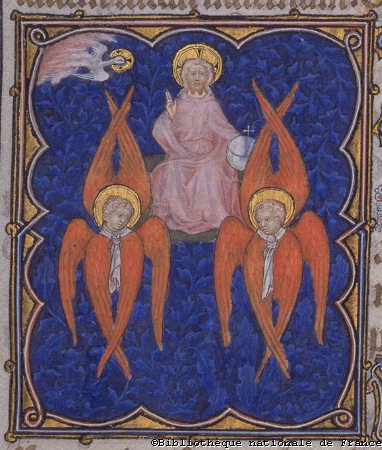
“Ah, very probably. I do not meet with many clever people. And as for My numerous worshippers, you forget how often you have demonstrated that I was the delusion of an old woman.”
“Well, and was there ever a flaw in my logic?”
“I was not listening to you, Jurgen. You must know that logic does not much concern us, inasmuch as nothing is logical hereabouts.”
And now the four winged creatures ceased their chaunting, and the organ music became a far-off murmuring. And there was silence in Heaven. And the God of Jurgen’s grandmother, too, was silent for a while, and the rainbow under which He sat put off its seven colors and burned with an unendurable white, tinged bluishly, while the God considered ancient things. Then in the silence this God began to speak.
Some years ago (said the God of Jurgen’s grandmother) it was reported to Koshchei that scepticism was abroad in his universe, and that one walked therein who would be contented with no rational explanation. “Bring me this infidel,” says Koshchei: so they brought to him in the void a little bent gray woman in an old gray shawl. “Now, tell me why you will not believe,” says Koshchei, “in things as they are.”
Then the decent little bent gray woman answered civilly; “I do not know, sir, who you may happen to be. But, since you ask me, everybody knows that things as they are must be regarded as temporary afflictions, and as trials through which we are righteously condemned to pass, in order to attain to eternal life with our loved ones in Heaven.”
“Ah, yes,” said Koshchei, who made things as they are; “ah, yes, to be sure! and how did you learn of this?”
“Why, every Sunday morning the priest discoursed to us about Heaven, and of how happy we would be there after death.”
“Has this woman died, then?” asked Koshchei.
“Yes, sir,” they told him, — “recently. And she will believe nothing we explain to her, but demands to be taken to Heaven.”
“Now, this is very vexing,” Koshchei said, “and I cannot, of course, put up with such scepticism. That would never do. So why do you not convey her to this Heaven which she believes in, and thus put an end to the matter?”
“But, sir,” they told him, “there is no such place.”
Then Koshchei reflected. “It is certainly strange that a place which does not exist should be a matter of public knowledge in another place. Where does this woman come from?”
“From Earth,” they told him.
“Where is that?” he asked: and they explained to him as well as they could.
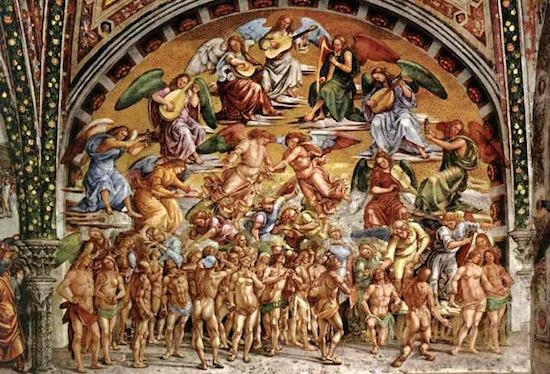
“Oh, yes, over that way,” Koshchei interrupted. “I remember. Now — but what is your name, woman who wishes to go to Heaven?”
“Steinvor, sir… and if you please I am rather in a hurry to be with my children again. You see, I have not seen any of them for a long while.”
“But stay,” said Koshchei: “what is that which comes into this woman’s eyes as she speaks of her children?” They told him it was love.
“Did I create this love?” says Koshchei, who made things as they are. And they told him, no: and that there were many sorts of love, but that this especial sort was an illusion which women had invented for themselves, and which they exhibited in all dealings with their children. And Koshchei sighed.
“Tell me about your children,” Koshchei then said to Steinvor: “and look at me as you talk, so that I may see your eyes.”
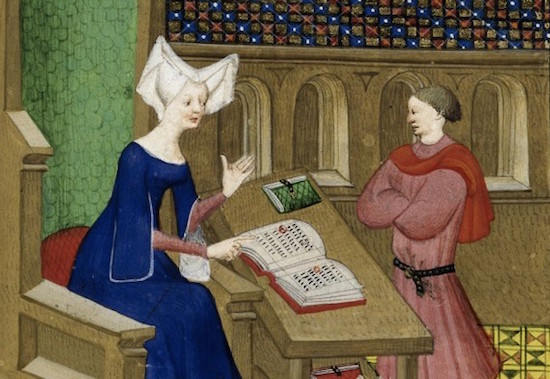
So Steinvor talked of her children: and Koshchei, who made all things, listened very attentively. Of Coth she told him, of her only son, confessing Coth was the finest boy that ever lived, — “a little wild, sir, at first, but then you know what boys are,” — and telling of how well Coth had done in business and of how he had even risen to be an alderman. Koshchei, who made all things, seemed properly impressed. Then Steinvor talked of her daughters, of Imperia and Lindamira and Christine: of Imperia’s beauty, and of Lindamira’s bravery under the mishaps of an unlucky marriage, and of Christine’s superlative housekeeping. “Fine women, sir, every one of them, with children of their own! and to me they still seem such babies, bless them!” And the decent little bent gray woman laughed. “I have been very lucky in my children, sir, and in my grandchildren, too,” she told Koshchei. “There is Jurgen, now, my Coth’s boy! You may not believe it, sir, but there is a story I must tell you about Jurgen—” So she ran on very happily and proudly, while Koshchei, who made all things, listened, and watched the eyes of Steinvor.
Then privately Koshchei asked, “Are these children and grandchildren of Steinvor such as she reports?”
“No, sir,” they told him privately.
So as Steinvor talked Koshchei devised illusions in accordance with that which Steinvor said, and created such children and grandchildren as she described. Male and female he created them standing behind Steinvor, and all were beautiful and stainless: and Koshchei gave life to these illusions.
Then Koshchei bade her turn about. She obeyed: and Koshchei was forgotten.
Well, Koshchei sat there alone in the void, looking not very happy, and looking puzzled, and drumming upon his knee, and staring at the little bent gray woman, who was busied with her children and grandchildren, and had forgotten all about him. “But surely, Lindamira,” he hears Steinvor say, “we are not yet in Heaven.” — “Ah, my dear mother,” replies her illusion of Lindamira, “to be with you again is Heaven: and besides, it may be that Heaven is like this, after all.” — “My darling child, it is sweet of you to say that, and exactly like you to say that. But you know very well that Heaven is fully described in the Book of Revelations, in the Bible, as the glorious place that Heaven is. Whereas, as you can see for yourself, around us is nothing at all, and no person at all except that very civil gentleman to whom I was just talking; and who, between ourselves, seems woefully uninformed about the most ordinary matters.”
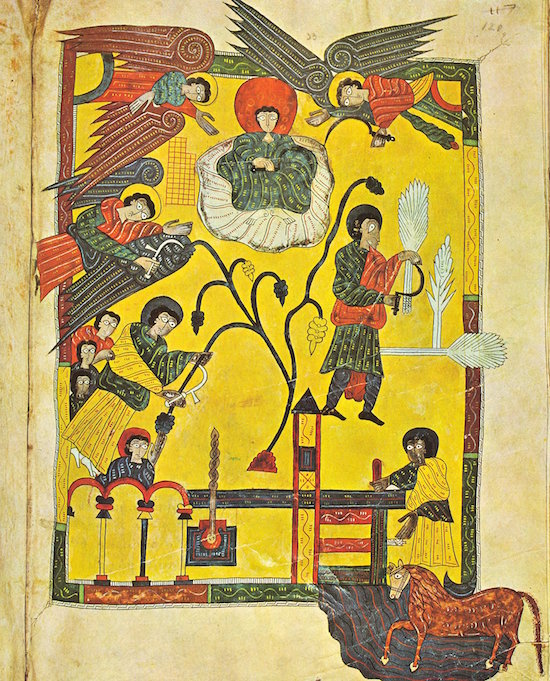
“Bring Earth to me,” says Koshchei. This was done, and Koshchei looked over the planet, and found a Bible. Koshchei opened the Bible, and read the Revelation of St. John the Divine, while Steinvor talked with her illusions. “I see,” said Koshchei. “The idea is a little garish. Still—!” So he replaced the Bible, and bade them put Earth, too, in its proper place, for Koshchei dislikes wasting anything. Then Koshchei smiled and created Heaven about Steinvor and her illusions, and he made Heaven just such a place as was described in the book.
“And so, Jurgen, that was how it came about,” ended the God of Jurgen’s grandmother. “And Me also Koshchei created at that time, with the seraphim and the saints and all the blessed, very much as you see us: and, of course, he caused us to have been here always, since the beginning of time, because that, too, was in the book.”
“But how could that be done?” says Jurgen, with brows puckering.
“And in what way could Koshchei juggle so with time?”
“How should I know, since I am but the illusion of an old woman, as you have so frequently proved by logic? Let it suffice that whatever Koshchei wills, not only happens, but has already happened beyond the ancientest memory of man and his mother. How otherwise could he be Koshchei?”
“And all this,” said Jurgen, virtuously, “for a woman who was not even faithful to her husband!”
“Oh, very probably!” said the God: “at all events, it was done for a woman who loved. Koshchei will do almost anything to humor love, since love is one of the two things which are impossible to Koshchei.”
“I have heard that pride is impossible to Koshchei —”
The God of Jurgen’s grandmother raised His white eyebrows. “What is pride? I do not think I ever heard of it before. Assuredly it is something that does not enter here.”
“But why is love impossible to Koshchei?”
“Because Koshchei made things as they are, and day and night he contemplates things as they are. How, then, can Koshchei love anything?”
But Jurgen shook his sleek black head. “That I cannot understand at all. If I were imprisoned in a cell wherein was nothing except my verses I would not be happy, and certainly I would not be proud: but even so, I would love my verses. I am afraid that I fall in more readily with the ideas of Grandfather Satan than with Yours; and without contradicting You, I cannot but wonder if what You reveal is true.”
“And how should I know whether or not I speak the truth?” the God asked of him, “since I am but the illusion of an old woman, as you have so frequently proved by logic.”
“Well, well!” said Jurgen, “You may be right in all matters, and certainly I cannot presume to say You are wrong: but still, at the same time — ! No, even now I do not quite believe in You.”
“Who could expect it of a clever fellow, who sees so clearly through the illusions of old women?” the God asked, a little wearily.
And Jurgen answered:
“God of my grandmother, I cannot quite believe in You, and Your doings as they are recorded I find incoherent and a little droll. But I am glad the affair has been so arranged that You may always now be real to brave and gentle persons who have believed in and have worshipped and have loved You. To have disappointed them would have been unfair: and it is right that before the faith they had in You not even Koshchei who made things as they are was able to be reasonable.
“God of my grandmother, I cannot quite believe in You; but remembering the sum of love and faith that has been given You, I tremble. I think of the dear people whose living was confident and glad because of their faith in You: I think of them, and in my heart contends a blind contrition, and a yearning, and an enviousness, and yet a tender sort of amusement colors all. Oh, God, there was never any other deity who had such dear worshippers as You have had, and You should be very proud of them.
“God of my grandmother, I cannot quite believe in You, yet I am not as those who would come peering at You reasonably. I, Jurgen, see You only through a mist of tears. For You were loved by those whom I loved greatly very long ago: and when I look at You it is Your worshippers and the dear believers of old that I remember. And it seems to me that dates and manuscripts and the opinions of learned persons are very trifling things beside what I remember, and what I envy!”
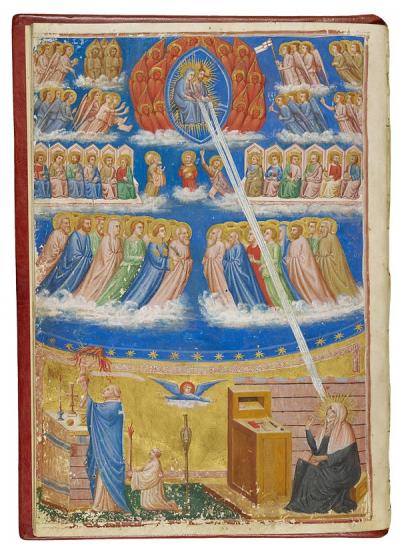
“Who could have expected such a monstrous clever fellow ever to envy the illusions of old women?” the God of Jurgen’s grandmother asked again: and yet His countenance was not unfriendly.
“Why, but,” said Jurgen, on a sudden, “why, but my grandmother — in a way — was right about Heaven and about You also. For certainly You seem to exist, and to reign in just such estate as she described. And yet, according to Your latest revelation, I too was right — in a way — about these things being an old woman’s delusions. I wonder now — ?”
“Yes, Jurgen?”
“Why, I wonder if everything is right, in a way? I wonder if that is the large secret of everything? It would not be a bad solution, sir,” said Jurgen, meditatively.
The God smiled. Then suddenly that part of Heaven was vacant, except for Jurgen, who stood there quite alone. And before him was the throne of the vanished God and the sceptre of the God, and Jurgen saw that the seven spots upon the great book were of red sealing-wax.
Jurgen was afraid: but he was particularly appalled by his consciousness that he was not going to falter. “What, you who have been duke and prince and king and emperor and pope! and do such dignities content a Jurgen? Why, not at all,” says Jurgen.
So Jurgen ascended the throne of Heaven, and sat beneath that wondrous rainbow: and in his lap now was the book, and in his hand was the sceptre, of the God of Jurgen’s grandmother.
Jurgen sat thus, for a long while regarding the bright vacant courts of Heaven. “And what will you do now?” says Jurgen, aloud. “Oh, fretful little Jurgen, you that have complained because you had not your desire, you are omnipotent over Earth and all the affairs of men. What now is your desire?” And sitting thus terribly enthroned, the heart of Jurgen was as lead within him, and he felt old and very tired. “For I do not know. Oh, nothing can help me, for I do not know what thing it is that I desire! And this book and this sceptre and this throne avail me nothing at all, and nothing can ever avail me: for I am Jurgen who seeks he knows not what.”
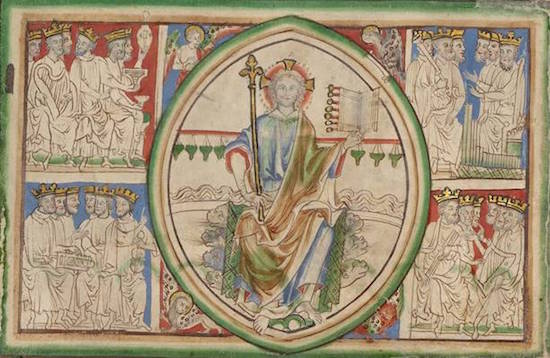
So Jurgen shrugged, and climbed down from the throne of the God, and wandering at adventure, came presently to four archangels. They were seated upon a fleecy cloud, and they were eating milk and honey from gold porringers: and of these radiant beings Jurgen inquired the quickest way out of Heaven.
“For hereabouts are none of my illusions,” said Jurgen, “and I must now return to such illusions as are congenial. One must believe in something. And all that I have seen in Heaven I have admired and envied, but in none of these things could I believe, and with none of these things could I be satisfied. And while I think of it, I wonder now if any of you gentlemen can give me news of that Lisa who used to be my wife?”
He described her; and they regarded him with compassion.
But these archangels, he found, had never heard of Lisa, and they assured him there was no such person in Heaven. For Steinvor had died when Jurgen was a boy, and so she had never seen Lisa; and in consequence, had not thought about Lisa one way or the other, when Steinvor outlined her notions to Koshchei who made things as they are.
Now Jurgen discovered, too, that, when his eyes first met the eyes of the God of Jurgen’s grandmother, Jurgen had stayed motionless for thirty-seven days, forgetful of everything save that the God of his grandmother was love.
“Nobody else has willingly turned away so soon,” Zachariel told him: “and we think that your insensibility is due to some evil virtue in the glittering garment which you are wearing, and of which the like was never seen in Heaven.”
“I did but search for justice,” Jurgen said: “and I could not find it in the eyes of your God, but only love and such forgiveness as troubled me.”
“Because of that should you rejoice,” the four archangels said; “and so should all that lives rejoice: and more particularly should we rejoice that dwell in Heaven, and hourly praise our Lord God’s negligence of justice, whereby we are permitted to enter into this place.”
RADIUM AGE SCIENCE FICTION: “Radium Age” is HILOBROW’s name for the 1904–33 era, which saw the discovery of radioactivity, the revelation that matter itself is constantly in movement — a fitting metaphor for the first decades of the 20th century, during which old scientific, religious, political, and social certainties were shattered. This era also saw the publication of genre-shattering writing by Edgar Rice Burroughs, Sax Rohmer, E.E. “Doc” Smith, Jack London, Arthur Conan Doyle, Aldous Huxley, Olaf Stapledon, Karel Čapek, H.P. Lovecraft, Charlotte Perkins Gilman, Yevgeny Zamyatin, Philip Gordon Wylie, and other pioneers of post-Verne/Wells, pre-Golden Age “science fiction.” More info here.
READ GORGEOUS PAPERBACKS: HiLoBooks has reissued the following 10 obscure but amazing Radium Age science fiction novels in beautiful print editions: Jack London’s The Scarlet Plague, Rudyard Kipling’s With the Night Mail (and “As Easy as A.B.C.”), Arthur Conan Doyle’s The Poison Belt, H. Rider Haggard’s When the World Shook, Edward Shanks’ The People of the Ruins, William Hope Hodgson’s The Night Land, J.D. Beresford’s Goslings, E.V. Odle’s The Clockwork Man, Cicely Hamilton’s Theodore Savage, and Muriel Jaeger’s The Man with Six Senses. For more information, visit the HiLoBooks homepage.
SERIALIZED BY HILOBOOKS: Jack London’s The Scarlet Plague | Rudyard Kipling’s With the Night Mail (and “As Easy as A.B.C.”) | Arthur Conan Doyle’s The Poison Belt | H. Rider Haggard’s When the World Shook | Edward Shanks’ The People of the Ruins | William Hope Hodgson’s The Night Land | J.D. Beresford’s Goslings | E.V. Odle’s The Clockwork Man | Cicely Hamilton’s Theodore Savage | Muriel Jaeger’s The Man With Six Senses | Jack London’s “The Red One” | Philip Francis Nowlan’s Armageddon 2419 A.D. | Homer Eon Flint’s The Devolutionist | W.E.B. DuBois’s “The Comet” | Edgar Rice Burroughs’s The Moon Men | Charlotte Perkins Gilman’s Herland | Sax Rohmer’s “The Zayat Kiss” | Eimar O’Duffy’s King Goshawk and the Birds | Frances Hodgson Burnett’s The Lost Prince | Morley Roberts’s The Fugitives | Helen MacInnes’s The Unconquerable | Geoffrey Household’s Watcher in the Shadows | William Haggard’s The High Wire | Hammond Innes’s Air Bridge | James Branch Cabell’s Jurgen | John Buchan’s “No Man’s Land” | John Russell’s “The Fourth Man” | E.M. Forster’s “The Machine Stops” | John Buchan’s Huntingtower | Arthur Conan Doyle’s When the World Screamed | Victor Bridges’ A Rogue By Compulsion | Jack London’s The Iron Heel | H. De Vere Stacpoole’s The Man Who Lost Himself | P.G. Wodehouse’s Leave It to Psmith | Richard Connell’s “The Most Dangerous Game” | Houdini and Lovecraft’s “Imprisoned with the Pharaohs” | Arthur Conan Doyle’s “The Sussex Vampire.”
ORIGINAL FICTION: HILOBROW has serialized three novels: James Parker’s The Ballad of Cocky The Fox (“a proof-of-concept that serialization can work on the Internet” — The Atlantic); Karinne Keithley Syers’s Linda Linda Linda (which includes original music); and Robert Waldron’s roman à clef The School on the Fens. We also publish original stories and comics. These include: Matthew Battles’s stories “Gita Nova“, “Makes the Man,” “Imago,” “Camera Lucida,” “A Simple Message”, “Children of the Volcano”, “The Gnomon”, “Billable Memories”, “For Provisional Description of Superficial Features”, “The Dogs in the Trees”, “The Sovereignties of Invention”, and “Survivor: The Island of Dr. Moreau”; several of these later appeared in the collection The Sovereignties of Invention | Peggy Nelson’s “Mood Indigo“, “Top Kill Fail“, and “Mercerism” | Annalee Newitz’s “The Great Oxygen Race” | Flourish Klink’s Star Trek fanfic “Conference Comms” | Charlie Mitchell’s “A Fantasy Land” | Charlie Mitchell’s “Sentinels” | Joshua Glenn’s “The Lawless One”, and the mashup story “Zarathustra vs. Swamp Thing” | Adam McGovern and Paolo Leandri’s Idoru Jones comics | John Holbo’s “Sugarplum Squeampunk” | “Another Corporate Death” (1) and “Another Corporate Death” (2) by Mike Fleisch | Kathryn Kuitenbrouwer and Frank Fiorentino’s graphic novel “The Song of Otto” (excerpt) | John Holbo’s graphic novel On Beyond Zarathustra (excerpt) | “Manoj” and “Josh” by Vijay Balakrishnan | “Verge” by Chris Rossi, and his audio novel Low Priority Hero | EPIC WINS: THE ILIAD (1.408-415) by Flourish Klink | EPIC WINS: THE KALEVALA (3.1-278) by James Parker | EPIC WINS: THE ARGONAUTICA (2.815-834) by Joshua Glenn | EPIC WINS: THE MYTH OF THE ELK by Matthew Battles | TROUBLED SUPERHUMAN CONTEST: Charles Pappas, “The Law” | CATASTROPHE CONTEST: Timothy Raymond, “Hem and the Flood” | TELEPATHY CONTEST: Rachel Ellis Adams, “Fatima, Can You Hear Me?” | OIL SPILL CONTEST: A.E. Smith, “Sound Thinking | LITTLE NEMO CAPTION CONTEST: Joe Lyons, “Necronomicon” | SPOOKY-KOOKY CONTEST: Tucker Cummings, “Well Marbled” | INVENT-A-HERO CONTEST: TG Gibbon, “The Firefly” | FANFICTION CONTEST: Lyette Mercier’s “Sex and the Single Superhero”
